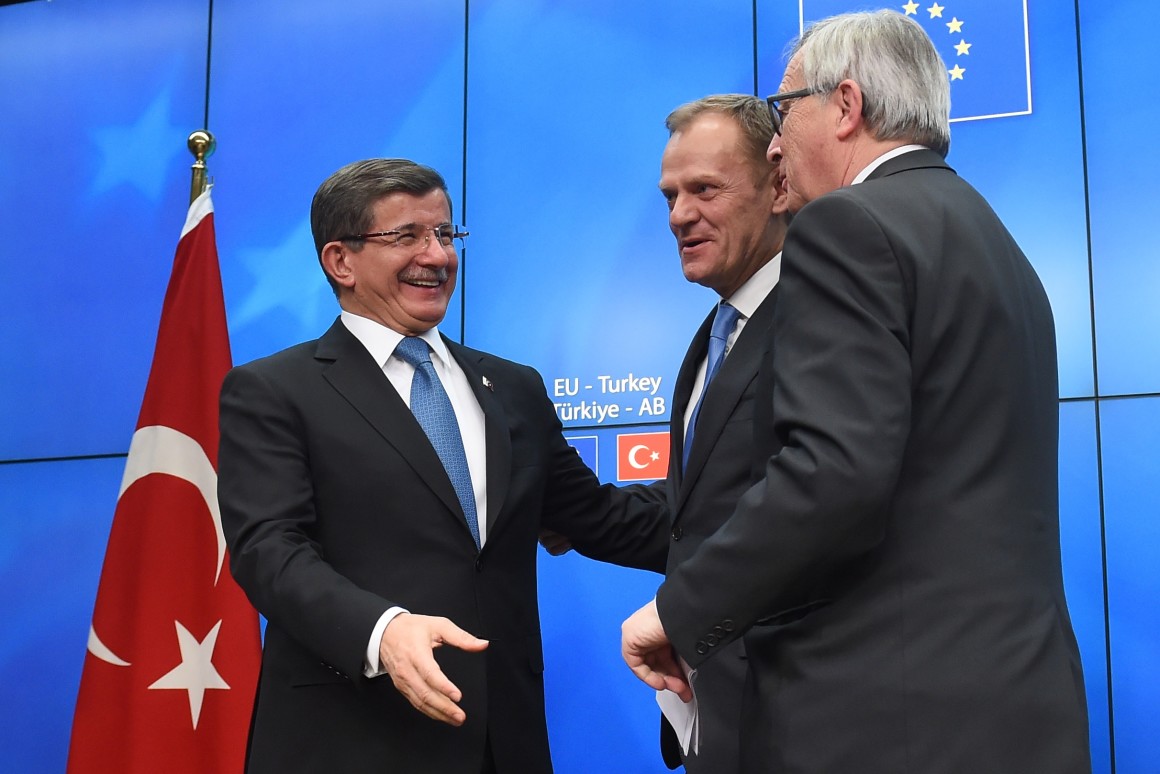Arab News
SINEM CENGIZ
The relations between two major non-Arab countries, Turkey and Iran, in the Middle East have deep historical roots and since the 1639 Treaty of Qasr-e-Shirin, the two countries have maintained these ties.
Throughout the history, Turkish-Iranian relations have had their ups and downs both due to their enduring geostrategic and ideological rivalry and occasional alliances when it came to the developments regarding the balance of power in the region.
It wouldn’t be wrong to describe the complex nature of relations between the two neighbors as a form of “tacit tension” i.e. both countries have serious disagreements in the region; yet are careful not to allow these differences affect bilateral relations mainly due to the convergence of economic and strategic interests.
Up until the Arab Spring in 2011, both countries were able to manage elements of cooperation and competition in their relationship. However, with the Arab Spring, differences between Ankara and Tehran increased as they interpreted the regional developments from very divergent views and threw their support behind rival groups in the region. This dealt a severe blow to the semblance of harmony in the relations between the two sides.
Needless to say, the ongoing war in Syria, the chaotic situation in Iraq, the emergence of Daesh and the conflict in Yemen have caused periodic crisis between Turkey and Iran. The post-Arab Spring era has further complicated the relations and limited the area of cooperation as the threat perception of the two countries in Syria and Iraq intensified. While Turkey backs the Free Syrian Army (FSA) that is fighting the brutal regime of Bashar Assad in Syria, Iran throws its full support behind the regime by sending its troops to Syria to fight against Turkish-supported opposition groups.
Besides Syria, another issue that brings Turkey and Iran at loggerheads is Iraq, where both countries are competing for political influence. Particularly, the ongoing battle of Mosul against Daesh is a concern for both countries as Turkey and Iran support different groups here as well. Turkey gives support to Kurdish Peshmerga forces loyal to Kurdistan Regional Government (KRG) and Sunni Arab tribes, Ninova Volunteers, while Iran supports Shiite forces — Hashd Al-Shaabi.
We see that there are several official visits taking place between both sides and the two countries are enjoying good economic ties; but behind closed doors, it is not a secret that the atmosphere does not seem sincere between the two states. However, we could say that the two countries — for the time being — seems to “agree to disagree” on their perception toward the developments in Syria and Iraq. Not only for the sake of economic and energy concerns, the threat emerging from Daesh and Kurdish separatism issue brings the two uneasy neighbors back on the same page.
While Turkey carries out its fight against Daesh in Syria, there are also groups (mainly Kurdish) from Iran that carry out a fight against Daesh in Iraq. Second reason is Kurdish separatism that pushes Tehran and Ankara for cooperation against a common threat. Both Turkey and Iran are aware of the fact that the separatism efforts have increased at a time when the region is experiencing political turmoil. As the Middle East is going through extraordinary days, Turkey and Iran are concerned that this situation may flare up the Kurdish idea for independence. Nervous about its own Kurdish minority, Iran follows the moves of Kurds, particularly those in Syria.
Both Turkey and Iran seems to have reached a tacit deal on the common fight against the terrorist Kurdistan Workers’ Party (PKK).
Speaking at a panel titled “Iran and Turkey in a changing Middle East” held in Ankara, touching upon this issue, Turkish academic Meliha Altunisik said: “Interest perception of both Turkey and Iran against Kurdish issue plays an important role in relations.” As a third reason for cooperation in relations, Altunisik said that while Iran’s trust toward Russia declines, Turkey loses confidence in the US with regards to the regional developments. “For Iran, only relying on Russia in Syria has become difficult. While for Turkey, it does not want to rely merely on the US. So we see some extent of cooperation between Tehran and Ankara in the perception toward the external powers.”
In late November, Iranian President Hassan Rouhani stated that if major regional powers (Turkey and Iran) stood together, problems in Iraq and Syria would be resolved without the need for “foreign powers.”



